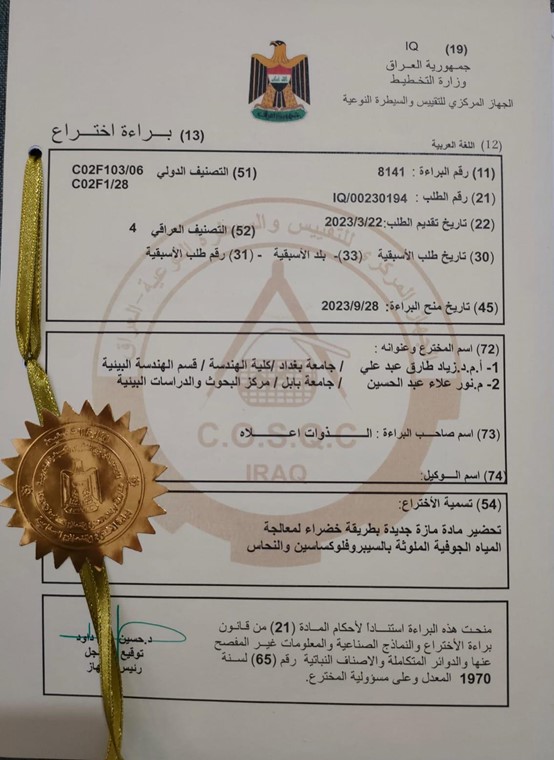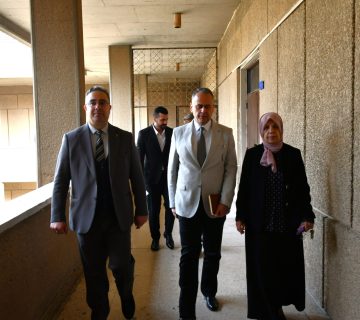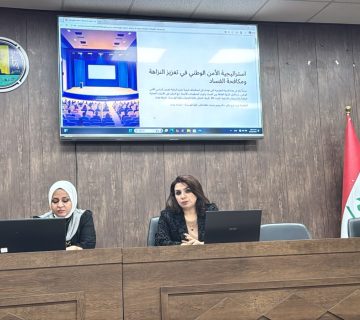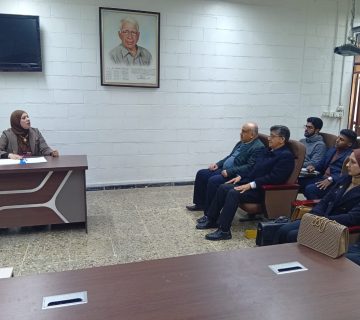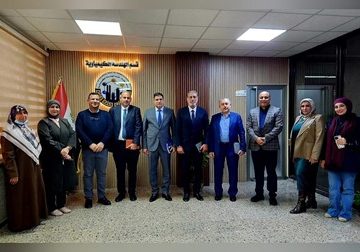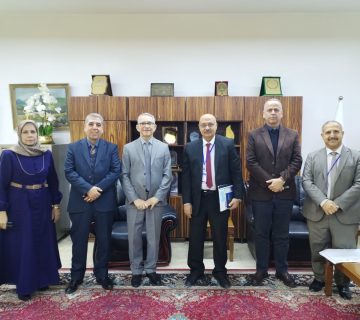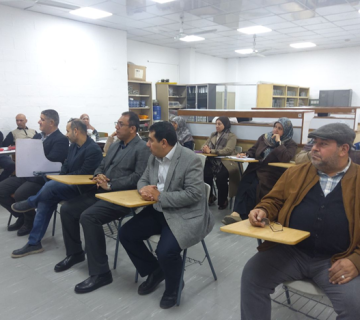Prof. Dr. Ziad Tariq Abd Ali, a faculty member in the Environmental Engineering Department, obtained a patent from the Central Agency for Standardization and Quality Control \ Ministry of Planning. It titled:
“Preparation of novel sorbent in a green method for remediation of contaminated groundwater with ciprofloxacin and copper
“
The patent is part of a PhD thesis of the student Noor Alaa Abdulhussein, which included the following:
In the present patent application, the manufactured material and its preparation using green synthesis technology using pomegranate peel extract at a 10% extraction rate with ethanol and at a mixing ratio of 0.1/0.1 M for both compounds (ferric chloride and lead sulfate) to produce the nanocomposite, quartz sand (QS) was supported by nanoparticles ( Fe/Pb) synthesized and characterized as a reactive material in a permeable reactive barrier (PRB) for the treatment of ciprofloxacin and copper-contaminated groundwater in batch and continuous modes. The properties of the nanocomposite were determined using several tests, including XRD, FTIR, SEM, EDX, TEM, and surface area. Several coefficients affecting the removal process were studied in the batch and continuous modes to obtain the best conditions that achieve the highest removal percentage (99%) and to evaluate the activity of the nanocomposite as a reactive layer. Freundlich and Langmuir, three kinetic models, and five models were used to represent the penetration curve (Thomas-BDST, Bohart-Adams, Belter-Cussler-Hu Model, Yan, and Clark). The results indicated that the Friendship model and the second-order model show the most appropriate agreement with the experimental group data with an absorption capacity of 15 and 9.8 mg/g for ciprofloxacin and copper, respectively, while Clark’s model was the most representative of the continuous experimental data. This study proved that the prepared nanocomposite can be a successful reactant in effective permeable barrier technology.

